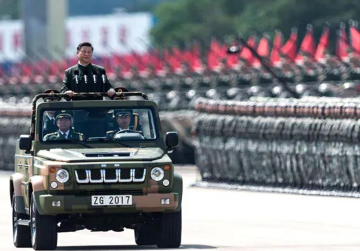
In November 2022, India assumed the chair of the Global Partnership on Artificial Intelligence (GPAI). This follows closely on the heels of India taking over the presidency of the G20. The leadership of GPAI and G20 has provided New Delhi with an unprecedented opportunity to lead on the emerging tech front. It has the combined talent and resource pool of both these organisations at its disposal currently, and their usage in a coordinated and focused manner would be prudent.
Composition and structure of GPAI
The GPAI was launched in June 2020 with 15 members. It currently consists of 29 members including the United States (US), United Kingdom (UK), European Union (EU), India, Australia, Canada, Brazil, and Argentina, among others. It is a multistakeholder initiative with an aim “to bring together leading experts from science, industry, civil society, international organisations and governments that share values to bridge the gap between theory and practice on AI by supporting cutting-edge research and applied activities on AI-related priorities.” It came about as a result of the Organisation of Economic Cooperation and Development’s recommendation to encourage the responsible development of AI grounded in the principles of human rights, inclusion, diversity, innovation, and economic growth.
The GPAI also has two Centres of Expertise based in Paris and Montreal, which support GPAI’s working groups and organise the annual MEG plenary.
The GPAI is governed by the GPAI Council, which provides strategic direction to GPAI and is responsible for all its major decisions, including membership and participation. Its work is presented annually during the Multi-stakeholder Experts Group (MEG) Plenary where 100-150 experts from science, industry, civil society, trade unions, international organisations, and governments discuss outcomes and projects for future collaborations. The GPAI also has two Centres of Expertise based in Paris and Montreal, which support GPAI’s working groups and organise the annual MEG plenary. There are four working groups focused on the themes of responsible AI, data governance, the future of work, and commercialisation and innovation.
Ahead of the GPAI’s annual summit in December 2023, India is planning to host a series of working group convenings to raise awareness around GPAI outputs and enhance knowledge sharing between GPAI working groups and member countries by providing experts a platform to present the work being done by them. The first of these was held on 1 June 2023.
India’s progress and achievements in AI tech
AI technology has burst onto the scene in recent years. It is expected to add US$450-500 billion to India’s GDP by 2025. It is also projected to drive a US$7 trillion increase in global GDP over the next decade. Given these dynamics, India realised the importance of this technology early on and undertook several initiatives to foster and develop it.
The government has launched the National Programme on AI as an umbrella programme “for leveraging transformative technology to foster inclusion, innovation and adoption for social impact.”
The NITI Aayog has been the primary catalyst for the advancement of AI. In 2018, it released the National Strategy for Artificial Intelligence, which focused on five sectors that are envisioned to benefit most from AI in serving societal needs—healthcare, agriculture, education, smart cities and infrastructure, and smart mobility and transportation. The body has also been working on a framework for Responsible AI for which it had released a discussion paper in 2022. The paper focuses on the regulation of AI using facial recognition technology as a concrete example.
The government has launched the National Programme on AI as an umbrella programme “for leveraging transformative technology to foster inclusion, innovation and adoption for social impact.” It also launched the National AI Portal, a repository of AI-based initiatives in the country. This comes alongside the setting up of a National Data Governance Framework Policy, which aims to ensure that non-personal and anonymised data from both government and private entities are safely accessible to the research and innovation ecosystem. This is accompanied by the recent announcement of the launch of three AI Centres of Excellence (COE) and the largest public accessible datasets programme called the India Datasets Programme under the INDIAai initiative.
The private sector is also playing an active role in the development and regulation of AI. For instance, the National Association of Software and Service Companies released its Guidelines for Generative AI in June 2023 with the aim to promote and facilitate responsible development use of Generative AI.
Currently, India ranks fifth in terms of funding received by startups producing AI-based goods and services according to the AI Index Report by Stanford University. Table 1 lists some of the prominent ones.
Table 1: Major AI Startups
| Name |
Funding |
Location |
| VerSe |
US$1.79 billion |
Bengaluru |
| Ola Electric |
US$866 million |
Bengaluru |
| Fractal |
US$685 million |
Mumbai |
| Uniphore |
US$658 million |
Chennai |
Source: Author’s compiled data
India’s role as chairman of GPAI
As chairman of the GPAI, India has a significant role to play in the responsible and inclusive development of AI and its global adoption. It also has a golden opportunity to establish itself as an AI superpower. As such, it needs to focus on certain key areas:
Impact of AI on the labour market
The International Monetary Fund has stated that developing technologies like AI and machine learning will have a significant impact on developing economies. This is primarily because AI automation could potentially alter the labour market in an unprecedented fashion by potentially replacing rather than complementing the growing labour force of the lesser developed economies. The establishment of AI automation in developed economies will thus likely lead to a diversion in investment to these countries, further widening the gap between the advanced and developing economies.
The International Monetary Fund has stated that developing technologies like AI and machine learning will have a significant impact on developing economies.
While the Future of Work working group of GPAI has undertaken several projects to observe the use of AI at the workplace, it has not specifically addressed this issue. India can take a lead here. Given its huge labour force, India can develop new labour law standards to cope with the rapidly changing needs of the market. Given the threat of widespread job losses, it needs to develop social safety nets to help those whose jobs are displaced or lost.
Adoption of AI by the Global South
Out of the 29 GPAI members, Argentina, Brazil, India, and Senegal are the only four nations belonging to the Global South. With the exception of India and China, the Global South is also underrepresented in the GPAI working groups as well as other global forums on AI governance. India must play an active role in bridging this divide and ensuring that the lesser developed economies also get to reap the benefits of this technological shift. It also needs to ensure that they do not fall victim to “AI Colonialism”. Despite expressing an interest to involve more members from the Global South and welcoming Argentina and Senegal as new members at the 2022 Tokyo Summit, the GPAI has not yet taken any concrete steps in this direction. Global AI governance is being shaped primarily by the economically advanced nations of the world and India needs to ensure that this does not continue to be the case in the future. It has already articulated this sentiment by including the goal of “AI for All” in its National Strategy for AI.
Governance and responsible development of AI
The emergence of software like ChatGPT has stimulated the conversation on the potential applications and limits of AI technology. While this offers numerous benefits, it is also clear that certain measures are needed to safeguard from it. Applications like ChatGPT have recently been used to commit a wide variety of cybercrimes such as impersonation, data theft, and malware attacks. While there are several binding agreements on space and nuclear technology, there are none when it comes to cyberspace and AI.
India must play an active role in bridging this divide and ensuring that the lesser developed economies also get to reap the benefits of this technological shift.
India has the opportunity to spearhead the establishment of such an agreement as the head of GPAI to limit the exploitation of this technology and ensure its safe and inclusive development. To this end, it needs to collaborate with like-minded partners like the US, Canada, and the EU. India took a step in this direction when, at the Tokyo Summit of GPAI, it urged the member-states to work together on a common framework of rules and guidelines on data governance in order to prevent user harm and ensure safety of both the internet and AI.
Conclusion
From its applications in agriculture like soil analysis, to medical applications like improved health diagnostics, and the usage of software to create works of art, AI is on the verge of creating a paradigm shift in technology and innovation. India needs to be at the forefront of this revolution and ensure that it plays an active role in the safe and equitable development of this technology.
Prateek Tripathi is probationary Research Assistant, Centre For Security, Strategy and Technology at Observer Research Foundation
The views expressed above belong to the author(s). ORF research and analyses now available on Telegram! Click here to access our curated content — blogs, longforms and interviews.




 PREV
PREV


